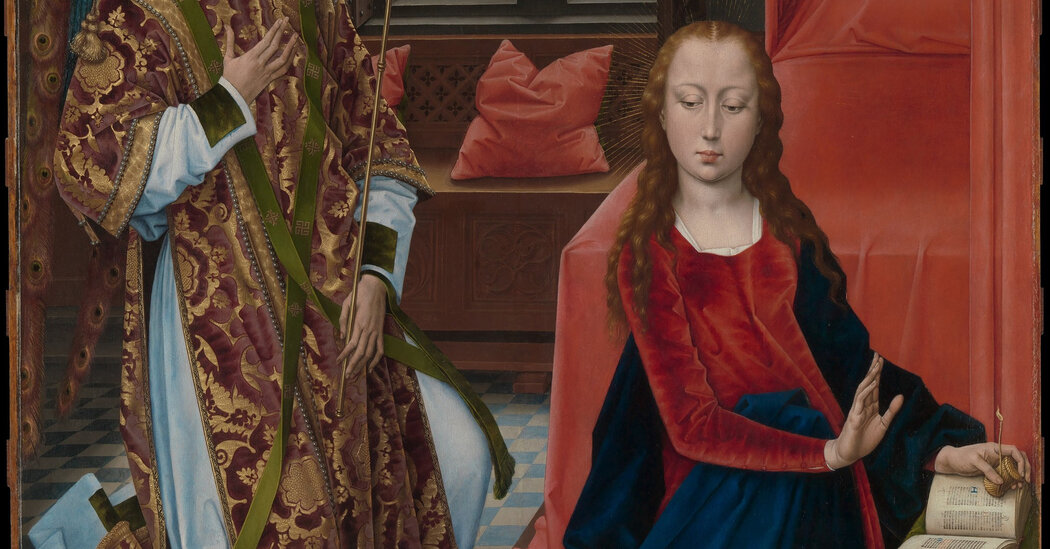Dear readers,
Happy Saturday. Today I pop in with two book recommendations — we’re visiting the philosophy and suspense aisles — and a quick personal note, which is that I am expecting a baby soon. (I mean, I don’t want to be presumptuous, but all signs do point to “impending baby”…)
If all goes well, I’ll be off the newsletter beat for a couple of months while conducting field studies in child husbandry. Recommendations will continue to be furnished by the gang of well-read colleagues you’ve come to know and love.
See you on the other side.
—Molly
How does one discuss philosophy with children? Midway through the first of four lectures in Jean-Luc Nancy’s book, a reader begins to suspect that the answer is: a lot more easily than with adults. Beginning in the early 2000s Nancy, a French philosopher, embarked on a project of “little dialogues” in which he delivered thoughts on Big Topics — love, God, justice, beauty — to an audience of schoolchildren. Each presentation was followed by a Q. and A. where the students posed questions to Nancy about his ideas; these exchanges are included in the volume and are its true joy.
The book is slender but tremendously repeatable. Read once through to capture and contend with Nancy’s ideas. Read a second time to admire his grace in illuminating (but not simplifying) thorny concepts. A third time for the joy of teleporting yourself into a room where David Hume and a skateboard hold equal citational utility. Then stick it on the shelf and revisit as needed.
Read if you like: Christian Marclay’s “The Clock,” Claire Denis, recreational theorizing
Available from: Fordham University Press
Barbara Vine is a pseudonym for the author Ruth Rendell. I’ve read several Vines but no Rendells, which may be the equivalent of memorizing Ringo Starr’s solo catalog without having listened to a single Beatles track. Then again, it might be the opposite. I’ll have to survey Rendell and report back.
In her Barbara Vine costume, the author writes books of suspense, though “A Dark-Adapted Eye” ignores most of the genre’s constraints, opting instead for postmodern maneuvering and structural experimentation. The characters are three-dimensional and the period (1930s-50s England) photorealistically evoked. There are not one but two scintillating female villains. The more conventional aspects of the plot — murder, poison, lies — catch a glow from Vine’s innovations.
I find that English suspense novels are often rendered doubly mystifying by frequent allusions to class that are too fine-grained for my blunt New World sensibility. Trying to interpret the significance of, for example, a couple’s wedding venue in suburban England in 1946 is like trying to examine a nanoparticle with a child’s microscope. (Preposterous.) It may be the rare case in which readerly ignorance can be said to enhance a text.
One warning: Over the course of the first 37 pages Vine lays out an exhaustive family genealogy of the sort that tends to be infuriating in any context other than Faulkner or the Bible — but what follows is, amazingly, worth it.
Read if you like: Euphemism, fussy domestic details, terrible secrets, misanthropy, the actor Shelley Duvall
Available from: Check your local library or bookstore, or search online for a new or used copy
Why don’t you …
-
Belly up to Charles Willeford’s sleazy 1955 novel “Pick-Up” — about a couple of bottom-feeding drunks in San Francisco — knowing nothing in advance except what I’ve mentioned between the em dashes above?
-
… and then, if “Pick-Up” pleases you, proceed to Dorothy Hughes’s “The Expendable Man,” from 1963. I read these novels back to back and caught a strong case of the willies upon discovering that they share a device I’ve seen nowhere else. (If you know the device of which I speak and have seen it elsewhere, kindly alert me in the comments. But try to be cunning in your wording, to avoid spoiling it for others.)
-
Find it in your heart to forgive me for self-promotion and read a story I wrote for The New York Times Magazine about scent, Italy, secrecy, throwing tomatoes at opera performers, nostalgia and more? This is the piece I coyly referenced in an earlier issue of RLTW. It is a lengthy one; you may wish to prepare three to five aperitivi as accompaniment.
Thank you for being a subscriber
Plunge further into books at The New York Times or our reading recommendations.
If you’re enjoying what you’re reading, please consider recommending it to others. They can sign up here. Browse all of our subscriber-only newsletters here.
Friendly reminder: check your local library for books! Many libraries allow you to reserve copies online.


